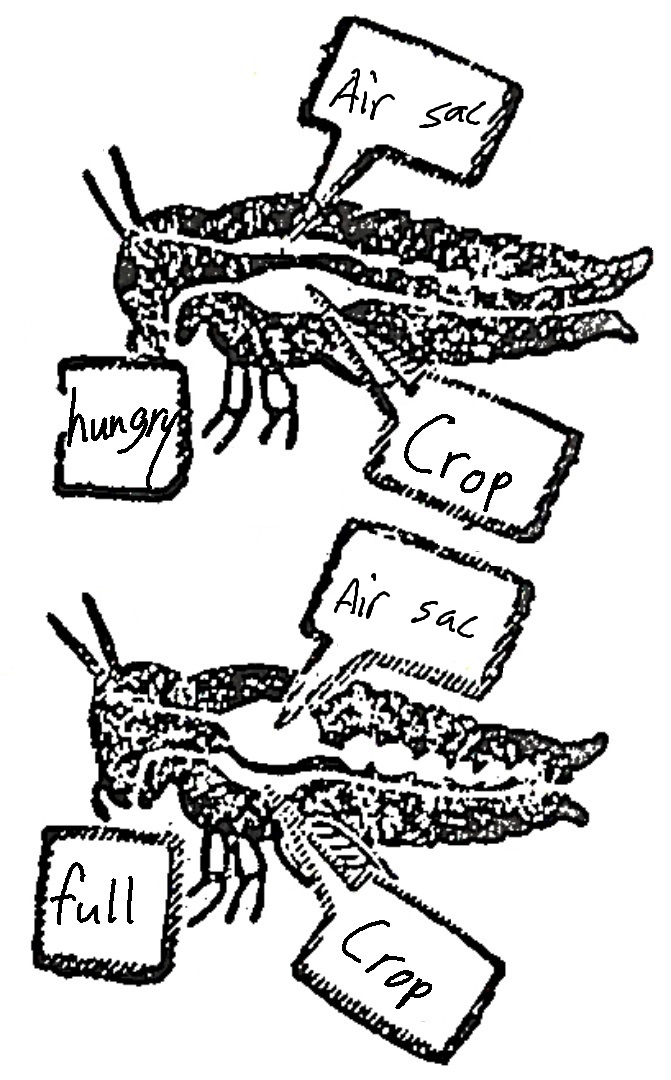There are many types of locusts, but the one that migrates in swarms is a type of migratory locust. The migration of migratory locusts is not for the purpose of finding food but to meet the high temperature requirements and nutritional needs for the development of their reproductive organs and eggs or sperm. The muscle activity during flight, especially long-distance muscle activity, allows them to quickly achieve these high temperatures. This promotes the consumption of body fat, enhances the supply of developmental nutrition, and accelerates the development process.
Since migration is not for finding food, why do they sometimes devour entire fields of crops overnight? This involves a complex physiological issue related to migration.
Along with their flight activity, other internal structures undergo corresponding changes. Notably, the continuous consumption of nutrient-containing fat bodies and the gradual expansion of air sacs used to store gases. These changes decisively influence whether locusts will feed after landing. The rate of fat body consumption affects the amount of stored nutrients, while the degree of air sac expansion impacts the mechanical pressure on the digestive tract. Thus, when they land, if their fat bodies have not been significantly consumed, their nutrient reserves are still sufficient, and their air sacs are still expanded, exerting greater pressure on the digestive tract and minimizing it, they will not feel hungry and may not need to feed immediately. They will wait for suitable conditions and continue migrating. Conversely, if the fat bodies are overly consumed and nutrient reserves are lacking, combined with the contraction of air sacs, greatly reducing the pressure on the digestive tract and restoring it to normal, they will feel empty and experience a strong increase in appetite, necessitating large amounts of food to replenish their stores.
Due to the migratory activities of locusts and this series of physiological changes, when they land, they can either “leave crops untouched” without eating a single bite or “leave no grass” by devouring all the crops overnight.

